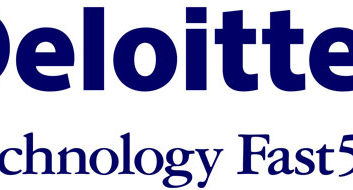Q&A: Russ Fadel, CEO, ThingWorx – “Hooked on Entrepreneurship”
Posted by | January 31, 2012

Welcome to the inaugural blog post for Safeguard Scientifics’ Q&A Series, featuring our partner company CEOs! We believe that our blog is a perfect medium to dig into what makes our partner companies tick. So, we’re going straight to the visionary and driving force behind each company—the CEO.
For our first Q&A Series, we interviewed serial entrepreneur Russ Fadel, CEO and Co-Founder of ThingWorx. We had a chance to speak with Russ about his experience as an entrepreneur, his secret sauce for building successful start-ups, and what’s new at his latest company—ThingWorx.
Why did you choose to become an entrepreneur?
When I was old enough to get a job, the only ones I could find weren’t very interesting and paid next to nothing—like buttering toast at a restaurant chain. Instead of settling, I decided to start my own business. So I ran a painting business from when I was 16 until I got out of college.
Once you’ve run a business and you’ve dealt with the challenges and the rewards, it’s hard to imagine going back and working in an organization where you don’t have as much control over your own destiny. I was hooked on entrepreneurship with that first painting business.
To what would you attribute your success?
I think one thing that’s overlooked sometimes is hard work. Hard work underpins all success. If you look at any entrepreneurs who are successful, they’re working 60 to 70 hours a week. When they’re not working, they’re thinking about work. But in addition to that, there are two other factors that success is highly reliant on.
First, it’s important to have good partners. The first thing I look for in a partner is that they have a complementary set of capabilities to what I bring to the table. They also need to have the same vision and passion for what we should be working towards. The second factor to success is deciding what is next for your business.
What is the most important lesson you’ve learned as an entrepreneur?
This echoes what I touched upon earlier—but a big challenge for entrepreneurs is figuring out what the next step with your business should be. At a glance, this sounds simple, but every single day an entrepreneur is faced with more choices than they have the time, or money, to follow, and they have to decide which next step is most important for the business. The problem is that this occasionally contradicts the set business plan. Figuring out where to spend your time and money is vital. The most important lesson I’ve learned so far is figuring out how to manage those two aspects while staying focused on what the business is trying to accomplish.
What’s your biggest business challenge right now?
We already have a great product, so now the challenge is increasing sales and growing our operational scale. The business we’re in crosses over between enterprise sales and not-quite-enterprise sales. We’re trying to turn an enterprise software product into a low-touch sale and that’s new ground for us. We’re not there yet, but it’s a process that we’re undergoing.
As we scale our business, one of the challenges is on the personnel side. It’s hard work to try to leverage your network of employees and business associates to identify good talent. However, we’re fortunate that even though we’re growing rapidly—we have a good-sized employee count right now—we’re still small enough where nearly every employee is either someone we have worked with before, or they were recommended by someone that we’ve worked with before.
What advice would you give other entrepreneurs in the tech space?
I think I’d echo the whole management theme, which is this: solve a problem that’s valuable and hard to do. Once you decide which problem you’re going to solve, build a talented team and stay focused on your goals. Many companies go in and they try to solve problems that are either not valuable or they’re not hard to solve. Others get into business with one idea and they run into an obstacle, lose focus, and start pursuing something else. So solve a problem that’s valuable and hard to do, build a good team, and stay focused in your pursuit.
How do you operate at ThingWorx? How do you motivate your team? What’s the culture like?
We have a team that is far on the right half of the bell curve in terms of capability, so we operate relatively loosely, but organized. Our executive team makes sure our goals and next steps are clear, so everyone is focused on the right objectives. Being a startup means those objectives can change over time, and what was important last month might not be what’s on our minds today. So we try to make sure everyone is aware of our goals so they can do what they do best.
What industries would you like to bring ThingWorx technology to next? Why?
Right now, we’re in about eight different market verticals, and we’re making traction in each of those areas. One of our near-term opportunities is in mobile devices. There’s a lot of attention in that space since wireless carriers all need access to the customer. If they decide on a software platform, everyone on their network is going to use that platform. So we’re focused right now on establishing a better position in mobile.
Healthcare is another booming industry, and we’re working with diagnostics companies—a space outside the regulatory issues that come with patient information. Healthcare is a space that’s very interesting, but right now we can’t spare the resources that we’d need to deal with the friction of the regulatory environment. We’ll be pursuing that space through partners with a better position to deal with that compliance.
Over the past year, more and more people have become interested in the connected-world space. How do you see this sector evolving in the months or years ahead? How are you capitalizing on that increased attention?
First and foremost, I think the space for us is moving more quickly than we expected. We see the connected world as the next age of software and computing, where typically separate spaces such as transportation, manufacturing, healthcare, and equipment, will connect.
Right now there are less than one billion connected devices, and over the next ten years, that number is expected to reach 50 billion. This is really the rapid expansion phase of this connected world, and ThingWorx is in a great position to capitalize on this growth.
What is your “go-to” news source?
I read Google News to get an overview of the world: politics, science, technology, entertainment (which I’m not big into), and sports. I can get a good view of the news in six or seven major categories. Then I go through the tech sources like Read Write Web and InformationWeek.
What’s your “must-have” app?
My smartphone serves my needs through a lot of the native apps. As CEO, I schedule a lot of meetings and appointments, and without the calendar I would be constantly behind. I also use email, but other than that I don’t use many apps.
For more information about ThingWorx, please visit the company’s website (www.thingworx.com) and blog (www.thingworx.com/blog), or you can Follow the company on Twitter (www.twitter.com/ThingWorx).
Stay Tuned for more in our Q&A Series with Safeguard Scientifics’ Partner Company CEOs. Next Up: Beyond.com’s CEO, Rich Milgram.




